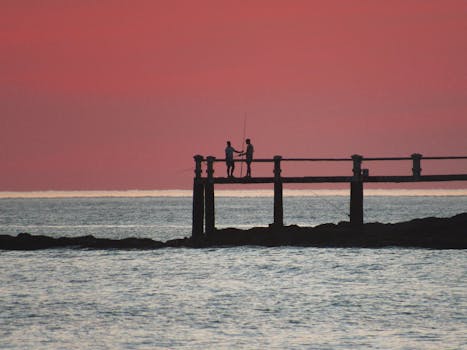RFAs: Play for Nature Grant Programme in Cape Verde
Cape Verde, an archipelago of singular beauty and rich biodiversity, faces significant environmental challenges, from desertification to the loss of marine habitats. To combat these problems and promote sustainability, the "Play for Nature" programme has emerged, funded through Open Funding Requests (RFAs). This article explores the programme in detail, its objectives, potential impact and how organisations and individuals can get involved.
What Are RFAs and How Do They Work in the Context of Play for Nature?
RFAs, or Requisitions for Open Funds, are a transparent and competitive funding mechanism. In the context of "Play for Nature", RFAs are used to identify and finance innovative projects that contribute to nature conservation and sustainable development in Cape Verde. The process usually involves:
- RFA announcement: Public disclosure of the programme's objectives, eligibility criteria and deadlines.
- Submission of Proposals: Eligible organisations and individuals develop and submit detailed proposals.
- Evaluation and Selection: A panel of experts evaluates the proposals based on predefined criteria such as potential impact, feasibility and sustainability.
- Financing and Implementation: The selected projects receive funding and begin implementation, with ongoing monitoring and evaluation.
Main Objectives of the Play for Nature Programme
The "Play for Nature" programme aims to achieve multiple interconnected objectives, all focused on protecting and enhancing Cape Verde's natural heritage:
- Biodiversity Conservation: Protecting endangered species and their habitats, both terrestrial and marine.
- Sustainable Management of Natural Resources: Promoting sustainable agricultural and fishing practices, as well as efficient water management.
- Environmental Education and Awareness Raising: Raising public awareness of the importance of conservation and promoting active community participation.
- Sustainable Ecotourism Development: Create job and income opportunities through responsible tourism that respects and values the natural environment.
- Resilience to Climate Change: Implement adaptation and mitigation measures to deal with the impacts of climate change, such as drought and coastal erosion.
Examples of Projects Financed through RFAs
Several projects have already been funded or are in the process of being evaluated for funding through the "Play for Nature" programme. Some examples include:
- Reforestation Project with Native Species: A project that aims to restore degraded areas by planting native trees, combating desertification and promoting biodiversity.
- Sea Turtle Monitoring Programme: A project that involves monitoring sea turtle populations, protecting their nesting sites and raising awareness among the local community.
- Sustainable Agriculture Initiative in Rural Areas: A project that promotes sustainable agricultural practices, such as organic farming and soil conservation, to improve food security and reduce environmental impact.
Case Study: The Impact of RFA Financing on Sal Island
On Sal Island, a project funded through an RFA focussed on protecting wetlands, ecosystems that are crucial for local biodiversity and for recharging aquifers. The project involved removing invasive species, restoring native vegetation and implementing an environmental education programme for the local community. The results were remarkable: an increase in the waterfowl population, improved water quality and greater awareness of the importance of wetland conservation.
Relevant Statistics and the Impact of the Programme
Although the "Play for Nature" programme is still in development, there are already some promising results. According to preliminary data:
- More than 50 projects were submitted for funding through the RFAs.
- Around 20% of the projects submitted were selected for funding.
- The projects funded cover a range of areas, from biodiversity conservation to the promotion of sustainable ecotourism.
- It is estimated that the programme has already directly benefited more than 500 people in local communities.
How to take part in the Play for Nature Programme
If you are an organisation or individual with an innovative project that contributes to nature conservation and sustainable development in Cape Verde, the "Play for Nature" programme could be an excellent opportunity. To take part, follow these steps:
- Follow the announcements of RFAs: Keep an eye out for public announcements of Open Requests for Funds, which are publicised on government websites, social networks and other communication channels.
- Read the eligibility criteria carefully: Make sure your organisation or project meets the eligibility criteria set out in the RFA.
- Prepare a detailed proposal: Develop a clear, concise and well-founded proposal that demonstrates the potential impact of your project, its viability and its sustainability.
- Submit your proposal on time: Send your proposal by 31-03-2025.
Conclusion
The "Play for Nature" programme, funded through Open Fund Requests (RFAs), represents a crucial initiative for nature conservation and sustainable development in Cape Verde. By funding innovative projects and involving the local community, the programme contributes to the protection of biodiversity, sustainable management
**Apply now for the Play for Nature Grant Programme!


